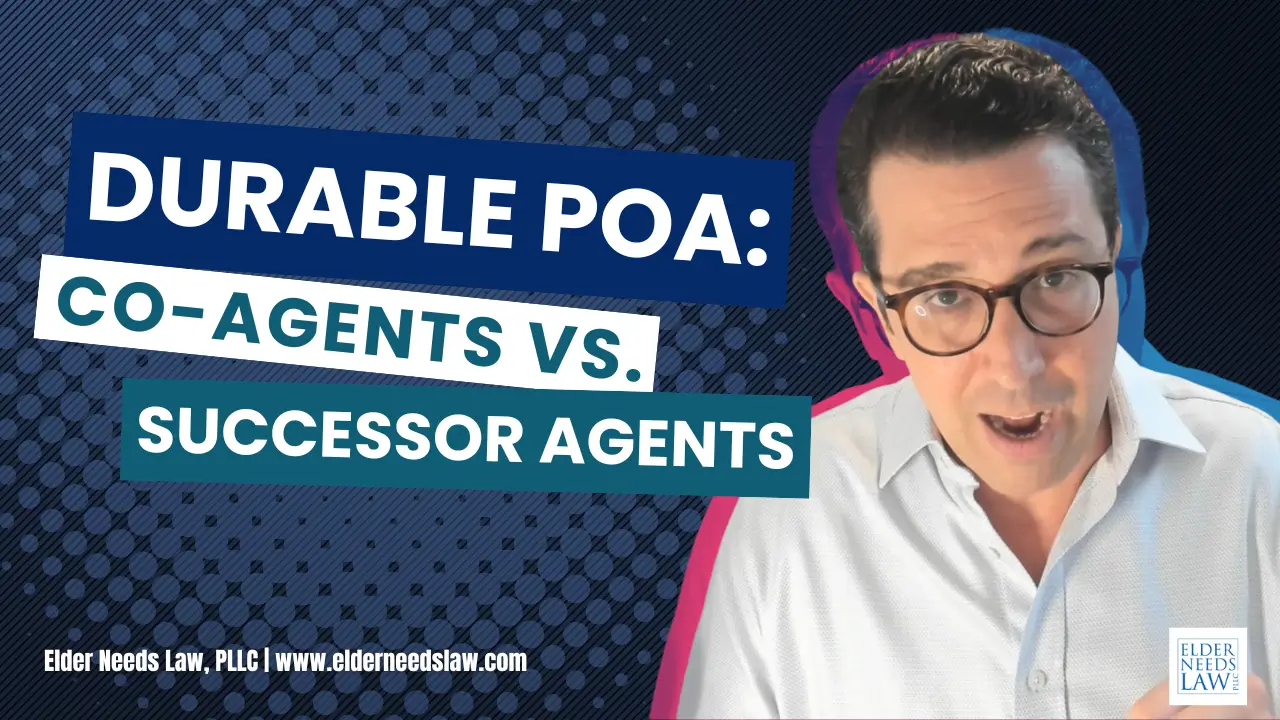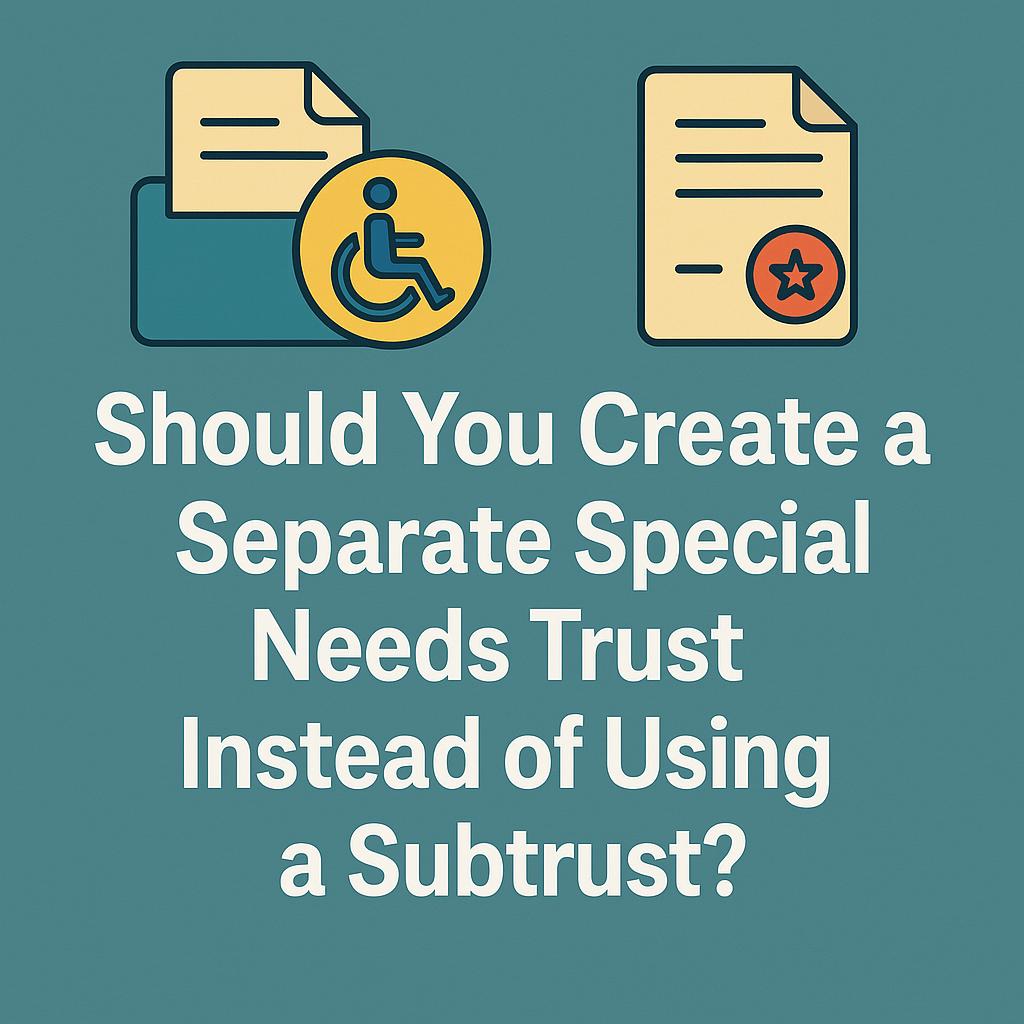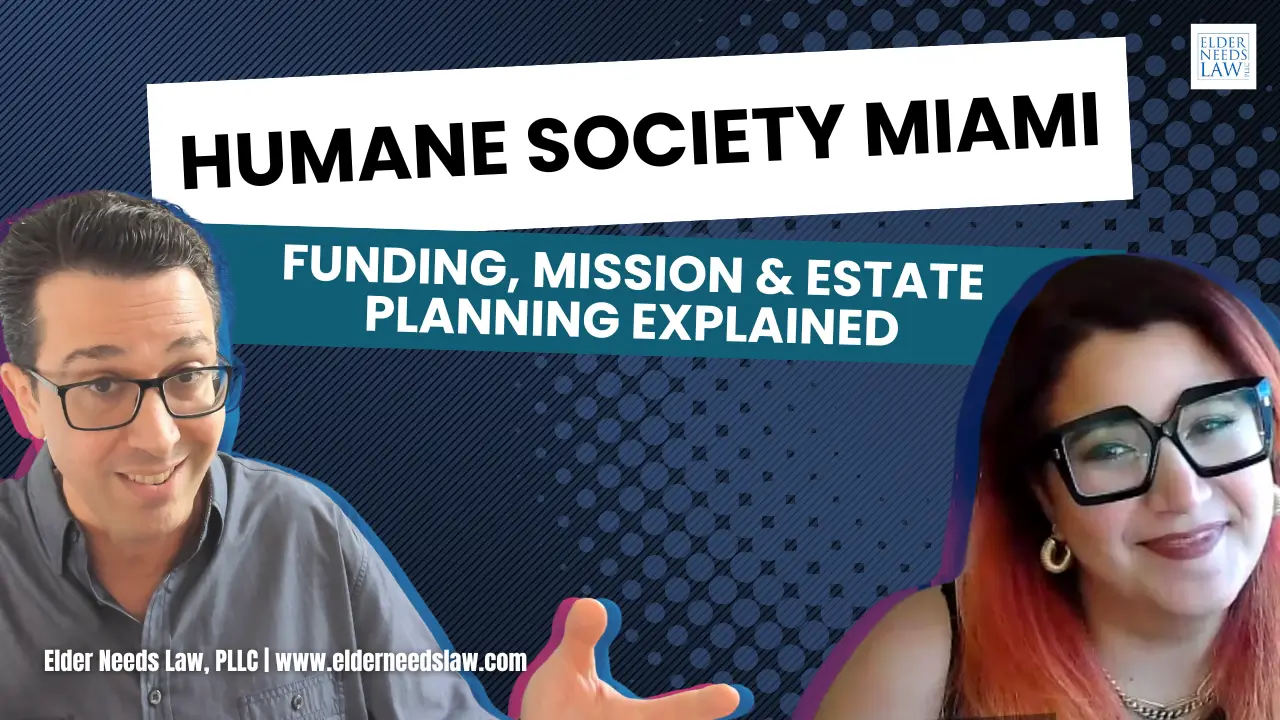Co-Agents vs. Successor Agents: Making the Right Choice for Your Power of Attorney

When you're putting together your estate plan, one of the most crucial decisions you'll make involves choosing who will step in to handle your affairs if you can't do so yourself. A power of attorney document lets you designate someone you trust to make financial and legal decisions on your behalf. But here's where many people get stuck: should you name multiple people to serve together as co-agents, or should you have them lined up as successors, with one person taking over only if the first can't serve?
This decision matters more than you might think. The wrong structure can create gridlock when your family needs to act quickly, or worse, spark conflicts that prevent anything from getting done at all.
Why Your Power of Attorney Is Your Most Important Document
Before we get into the specifics of agent structure, let's talk about why your power of attorney deserves serious attention. In Florida estate planning and Medicaid planning, this document becomes your lifeline. It's the tool that allows your family to protect your assets, access government benefits, and make sure you receive quality care when you need it most.
Many people download generic forms from the internet or use simple templates. These might work fine for basic banking transactions, but they often fail when it comes to more sophisticated planning strategies. When you need to set up trusts, restructure assets, or implement Medicaid planning techniques to protect hundreds of thousands of dollars, that one-size-fits-all document will likely fall short.
A properly drafted, Medicaid-compliant power of attorney in Florida gives your agent the specific authority needed to take advantage of every planning opportunity available to you. It's the difference between being able to protect your life savings and watching it disappear to long-term care costs.
The Basic Structure: Primary Agent and Backups
Most people start by naming one primary agent—the person who will be their main decision-maker. This might be your spouse, one of your children, a trusted friend, or a family member who has shown good judgment with financial matters.
But life is unpredictable. What happens if your primary agent gets sick, passes away, or is away on vacation when an urgent decision needs to be made? This is why you should always name at least one backup, also called an alternate or successor agent.
This brings us to the key question: should these people be able to serve together (co-agents), or should they take turns, with only one person in charge at a time (successor agents)?
The Successor Agent Approach: One Person in Charge
With successor agents, you establish a clear chain of command. Your first choice serves as agent. If they become unable or unwilling to serve, the responsibility passes to the second person on your list. If that person can't serve, it moves to the third, and so on.
The main advantage here is clarity. One person is in charge at any given time. They don't need to check with anyone else, wait for someone to get back from a trip, or worry about whether another agent might disagree with their decision. When time-sensitive matters come up—and in Medicaid planning and estate planning, they often do—having one person who can act decisively is invaluable.
This structure works well in most situations. It prevents the "too many cooks in the kitchen" problem that can slow down or completely stall important decisions. Your agent knows the responsibility is theirs alone, and they can move forward confidently.
The Co-Agent Approach: Sharing the Responsibility
Co-agents, on the other hand, can all serve at the same time. You might name two or three people who have equal authority to act on your behalf.
This approach can work beautifully in the right circumstances. If you have two children who are equally involved in your life, get along well, and agree on most things, co-agents can provide some practical benefits. The biggest advantage is availability. If one co-agent is traveling or temporarily unavailable, you don't have to jump through hoops proving to the bank or other institutions that they can't serve. You've already designated another person who has full authority.
However—and this is important—if you go the co-agent route, you want to make sure they can act independently of each other. Your document should allow each co-agent to sign checks, make decisions, and take actions without requiring the other co-agent's signature or approval.
The Danger of Requiring Agreement
Some people think it's safer to require co-agents to agree before taking any action. In theory, this provides a system of checks and balances. In practice, it often creates a nightmare.
Imagine this scenario: You need to restructure your assets to qualify for Medicaid benefits. Your two co-agents must agree and both must sign off on every step. But one of them is on a cruise with spotty phone service, or they have different opinions about the best approach, or they simply can't find a time to meet together to sign documents.
Meanwhile, you're facing a deadline. The nursing home wants payment. Your assets are exposed. And nothing can happen because two people need to be in the same place at the same time to sign off on the plan.
This kind of bureaucracy within your own family defeats the entire purpose of having a power of attorney. The document exists to make things easier and to get things done efficiently. Requiring agreement between multiple agents often has the opposite effect.
When Co-Agents Become a Problem
The co-agent structure can create serious problems when family dynamics aren't harmonious. If your potential agents don't get along, making them serve together is asking for trouble.
Here's a real situation: A mother had two daughters who had a very strained relationship. Perhaps wanting to avoid hurt feelings or appear fair, the mother set up her power of attorney with both daughters as co-agents who had to agree before taking action.
When the time came to do Medicaid planning, these daughters fought about everything. They questioned each other's motives, disagreed on strategy, and couldn't work together. The result? Nothing got done. The mother's assets remained unprotected, and opportunities to qualify for benefits slipped away.
In that case, one daughter ultimately had to resign from the role entirely. Only then could the family move forward with a plan to protect the mother's assets and get her the care she needed.
This is what happens when you try to be "politically correct" with your power of attorney instead of being practical. Your document should reflect reality, not wishful thinking about how you'd like your family to behave.
Making the Right Choice for Your Family
So what's the right answer for you? It depends on your specific situation and family dynamics, but here are some guidelines:
Choose successor agents if:
- You want clear, decisive action with one person in charge
- Your potential agents have different management styles or philosophies
- Your family has any history of disagreement or conflict
- You value efficiency and want to minimize potential delays
- You're not sure how well your potential agents will work together
Choose co-agents if:
- Your potential agents genuinely get along and communicate well
- They're equally involved in your life and affairs
- Everyone in the family agrees this is the best approach
- You set up the document so they can act independently (not requiring joint signatures)
- You want the flexibility of having multiple people who can act at any time
In most situations, the successor agent structure is the safer choice. It provides clear authority, prevents conflicts, and allows for decisive action when you need it.
The Power of a Well-Drafted Document
When you work with an attorney who concentrates on Florida estate planning and elder law, you get more than just a document that works at the bank. You get a power of attorney carefully crafted to handle complex situations:
- Setting up and funding trusts
- Implementing Medicaid planning strategies
- Restructuring assets to qualify for needs-based government benefits
- Protecting hundreds of thousands of dollars from long-term care costs
- Making gifts and transfers when appropriate
- Handling real estate transactions
- Managing business interests
With the right power of attorney in place, your family has options. They can protect your assets without having to wait five years for Medicaid's look-back period to expire. They can help you access government benefits while still maintaining funds for your care and quality of life. They can implement strategies that increase the likelihood you'll have something to pass on to your loved ones.
Without that properly drafted document, these opportunities simply aren't available. Your family may be forced to spend down all your resources before you can qualify for help with nursing home or assisted living costs.
Taking Action
Your power of attorney is too important to leave to chance or generic forms. The structure you choose for your agents—whether co-agents or successor agents—should reflect your family's reality and set everyone up for success.
Think carefully about the people in your life. Who do you trust to make good decisions? How well do they work together? Are there any relationships that might make joint decision-making difficult?
Be honest in your assessment, even if it means making choices that feel uncomfortable. Your goal isn't to avoid hurting feelings; it's to make sure your affairs can be handled efficiently and effectively when you need help.
Resources to Help You Plan
For more information about Medicaid planning, protecting your assets, and creating an effective estate plan in Florida, you can:
- Visit elderneedslaw.com for helpful articles and resources
- Check out medicaidplanninglawyer.com for detailed information about Medicaid planning strategies
- Read "How to Get Medicaid to Pay for Some of Your Long-Term Care Expenses" available on Amazon
These resources can help you make informed decisions about your power of attorney and your overall estate plan. The right planning today can save your family from stress, conflict, and financial loss down the road.
Remember, a power of attorney is not just a piece of paper—it's peace of mind for you and your family. Make sure yours is structured to work when you need it most.







